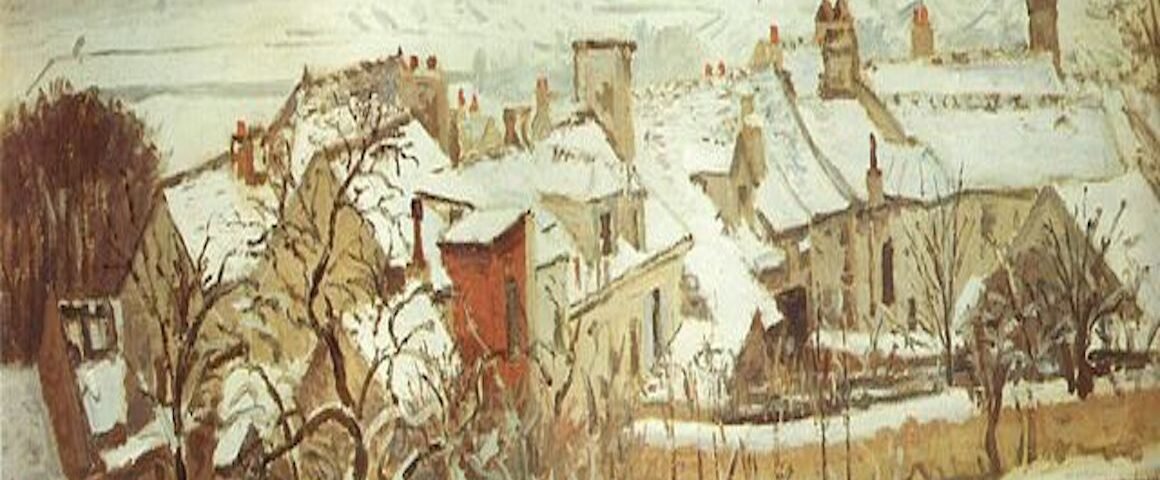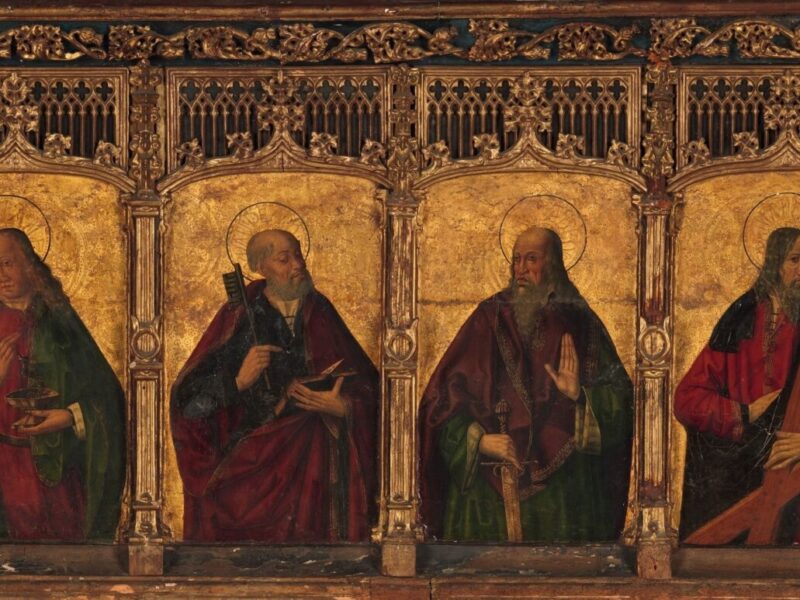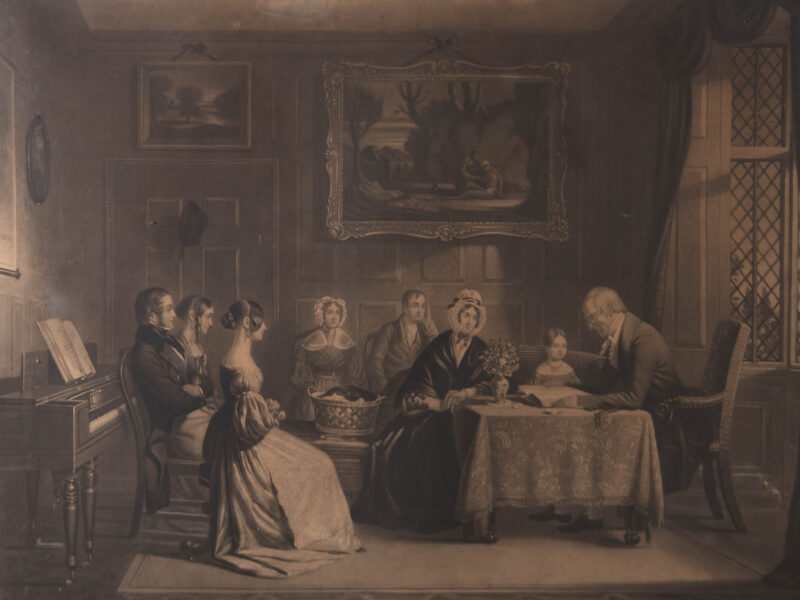The Resurrection
This silence of all the centuries before me: there was no way,
it had to be given up.
No way to say anymore of interrogated Earth:
she shut herself up.
The stars set themselves to tell what they’ve seen,
in tumult, each to each.
The ground’s broken silence and whatever it knows
it sets itself to teach.
The sun’s not yet risen; before that immense solitude
there’s an hour yet.
From Pole to Pole, there’s nothing to guard the tomb
but the vigil of the firmament.
When suddenly by moonlight the bells—fat cluster of grapes
hanging in the tower—
those benighted bells set themselves to sounding
as if by their own power.
It’s no human word. It’s the outsize sidereal
vintage swaying
in triumph; and the Earth, delivered Godward blow by blow,
urges this solemn baying.
The soul, already half-undressed, cries out
craving delirium.
And the dead, already half-living, mix with those bells’
mumbled magisterium.
The Virgin of Brangues
I am at her feet and I am praying.
But she, well… you couldn’t exactly say she sees me or hears me.
She is reflecting.
In the way one says that calm, pure water reflects.
The infant she holds in her left arm is the one who hears me. His ear
is turned toward me.
His heart beats…
And the proof that it beats is the long thin hand, raised over him, of
his mother, who listens to him.
She listens to him listening.
And the hand of the child in its turn rests on the mother’s arm.
Upon the maternal artery.
The Virgin of Brangues is a virgin who works.
And here I am, showing up at a job already well under way.
Brangues, 6 August, 1950
Paul Claudel (1868-1955) was a French poet, dramatist, and diplomat.As well as his famous verse dramas, Claudel also wrote lyric poetry. A major example is the Cinq Grandes Odes (Five Great Odes, 1907).





'Two Poems from the French of Paul Claudel' have 2 comments
November 15, 2024 @ 1:03 am Judith Wright
I cannot comment with an attempt to understand Paul Claudel’s poems nor with opprobrium. I am too heart-broken that Paul Claudel was a loved brother of his artist sister, Camille Claudel, who was also the student, muse, and lover of the famed sculptor, Auguste Rodin. Paul Claudel abandoned his sister, as did the rest of her family when, some years after Rodin refused to marry Camille or accept their child, and their relationship broke up, she exhibited symptoms of paranoia and lived an isolated life with odd behaviors. After her father’s death, the family had Camille committed to a meagerly supported asylum. Although she had been recognized as a gifted artist from a young age and later considered a genius in her own right, Camille gave up her artistry and passed away in 1943, a vague ghost of who she had been. While I mean no aspersion on the Roman Catholic faith, for most of Camille’s life, a woman was not allowed to have a sexually explicit life and was limited in achievement to marrying and having children. Camille had a Bohemian lifestyle, and I do not think it far-fetched that Paul would abandon a sister of whom his faith would disapprove. I do think it a great tragedy that a brilliant, gifted life was destroyed in such a cruel way by concepts of right and wrong, should and shouldn’ts, that are always in a state of flux and evolving. I would call on all people to be more compassionate and accepting of others, especially people who choose a different way of life or who are originally from another culture. One can only guess that Camille’s artistic proclivity from a young age made her less understandable to most of her family.
November 15, 2024 @ 1:10 am Judith Wright
I cannot comment with an attempt to understand Paul Claudel’s poems nor with opprobrium. I am too heart-broken that Paul Claudel was a loved brother of his artist sister, Camille Claudel, who was also the student, muse, and lover of the famed sculptor, Auguste Rodin. Paul Claudel abandoned his sister, as did the rest of her family when, some years after Rodin refused to marry Camille or accept their child, and their relationship broke up, she exhibited symptoms of paranoia and lived an isolated life with odd behaviors. After her father’s death, the family had Camille committed to a meagerly supported asylum. Although she had been recognized as a gifted artist from a young age and later considered a genius in her own right, Camille gave up her artistry and passed away in 1943, a vague ghost of who she had been. While I mean no aspersion on the Roman Catholic faith, for most of Camille’s life, a woman was not allowed to have a sexually explicit life and was limited in achievement to marrying and having children. Camille had a Bohemian lifestyle, and I do not think it far-fetched that Paul would abandon a sister of whom his faith would disapprove. I do think it a great tragedy that a brilliant, gifted life was destroyed in such a cruel way by concepts of right and wrong, should and shouldn’ts, that are always in a state of flux and evolving. I would call on all people to be more compassionate and accepting of others, especially people who choose a different way of life or who are originally from another culture. One can only guess that Camille’s artistic proclivity from a young age made her less understandable to most of her family, and the world will never know of what beauty and talent it was robbed because of the persecution of Camille Claudel.